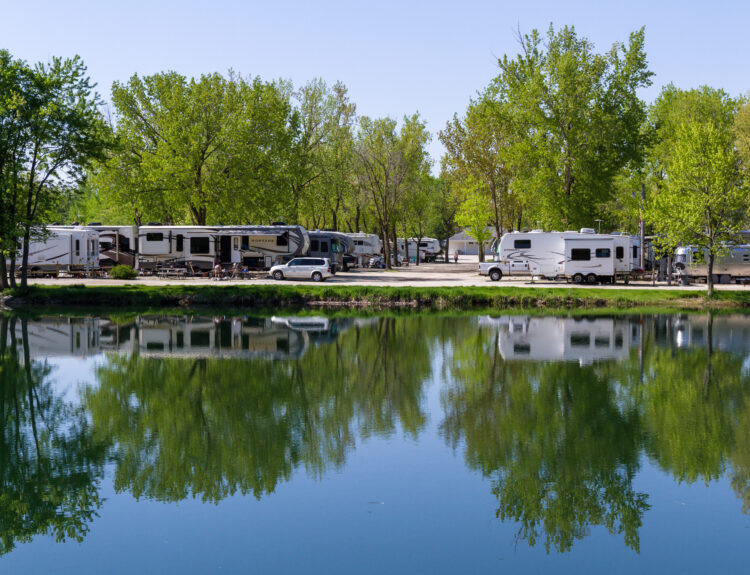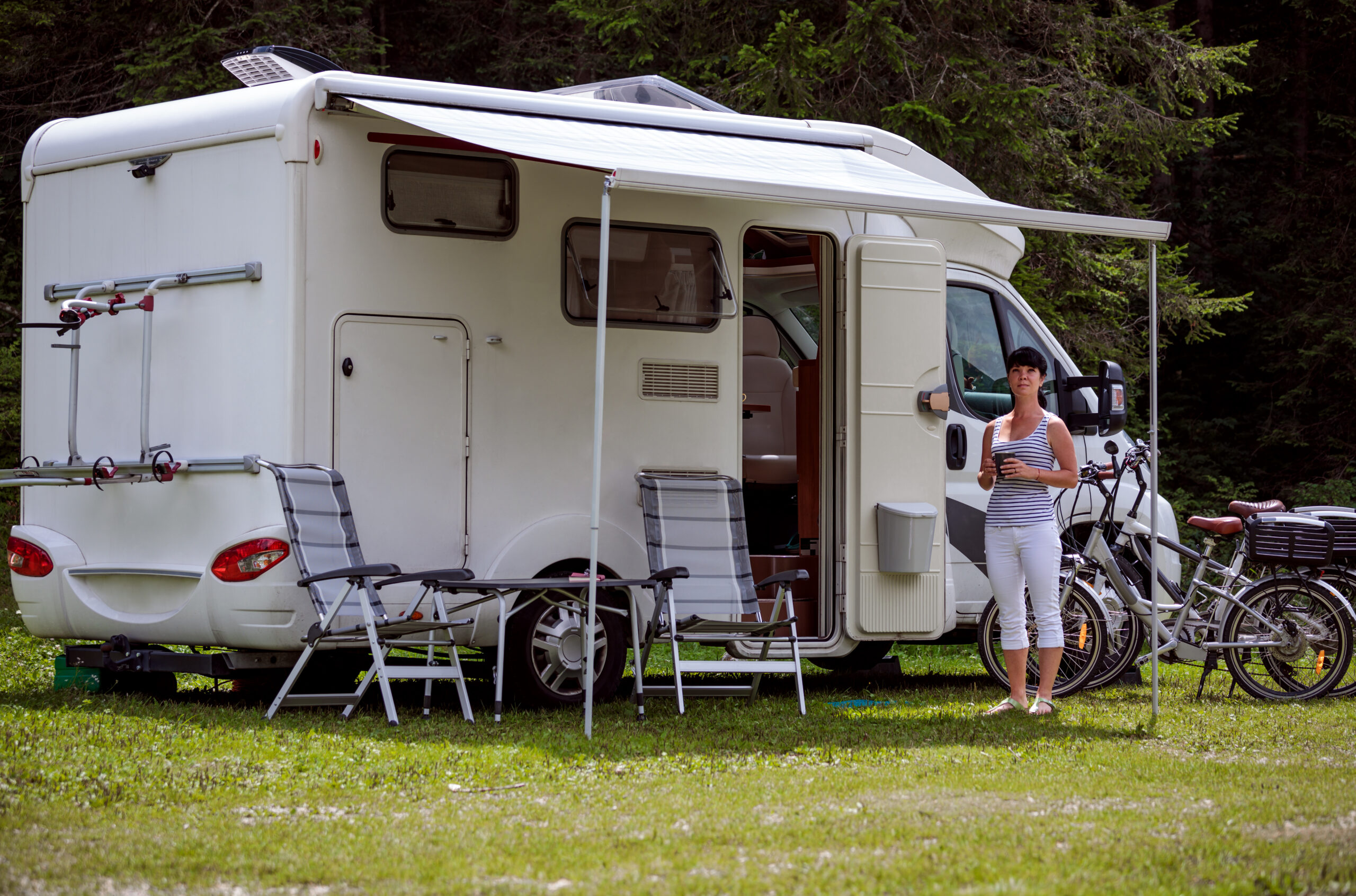Back in 2020, when remote work began to rapidly surge, a survey revealed that travelers considered Wi-Fi the best non-natural park amenity that a campground could offer. In the following years, this trend has kept growing and growing relentlessly.
Today, exploring RV park internet solutions and providing a high-quality Wi-Fi experience at your RV park isn’t merely about keeping pace with technology; it’s about catering to the evolving needs of your guests and securing a competitive edge in the industry.
The demographics and dynamics of RV travel have changed significantly in the past few years.
Up to 54% of RVers today are active remote workers. At the same time, traveling families depend more and more on the Internet for work, education, and entertainment.
A strong online review mentioning excellent Wi-Fi can do wonders in attracting potential guests. On the flip side, poor connectivity can lead to negative reviews, impacting future bookings.
Here, we will delve into the intricacies of setting up Wi-Fi at your RV park, offering valuable insights on RV park internet solutions. By the end, you’ll be equipped with the knowledge to make sure your RV park provides your guests with the internet experience they need.
Evaluating Your RV Park’s Internet Needs
Understanding the specific internet demands of your RV park is paramount to delivering a satisfying guest experience. To arrive at an effective solution, it’s essential to reflect on the unique characteristics and requirements of your campground.
Begin by gauging the anticipated number of guests. The bandwidth and overall internet capacity should be equipped to handle potential spikes, especially during peak seasons or times when the park is at maximum occupancy. Factor in that modern travelers are likely to bring multiple devices with them. It’s not uncommon for a family to have smartphones, laptops, tablets, and even smart TVs.
Beyond the number of devices, delve into the nature of online activities your guests typically engage in. Are they primarily connecting for streaming, gaming, or perhaps working remotely? Such high-bandwidth activities necessitate a faster and more stable connection than mere casual browsing or email checking.
Identify the key areas within your RV park that need the strongest coverage. Are there common areas where guests gather, or perhaps more distant sites that are tougher to reach? Such zones might require specialized solutions or additional access points.
Lastly, ponder over your financial allocation for this venture. Your budget will significantly shape the range and type of RV park internet solutions you can explore.
Tips and Best Practices for Setting Up WiFi at Your RV Park
Delivering a seamless internet experience for your guests requires careful planning and regular maintenance. Here, we offer a collection of actionable tips and best practices to ensure your WiFi system is robust, reliable and meets your guests’ digital demands.
Choose a Suitable Location for Your Router or Antenna
Positioning is key. Place your router or main antenna in a central location for optimal signal distribution throughout your RV park. Avoid areas with thick walls, metal structures, or dense foliage, as they can obstruct the signal. A higher location, like atop a building or pole, can help minimize interference and maximize coverage.
Book a FREE, personalized demo
Regularly Update and Maintain Your System
Technological landscapes evolve rapidly. Ensure that your router’s software or firmware is updated frequently to benefit from enhanced security patches and performance improvements. Also, allocate time for periodic physical checks. Look out for any visible damages, dust accumulation, or potential obstructions that might affect your system’s performance.
Use a WiFi Extender or Booster to Improve Signal Strength
For larger RV parks or areas with weak signals, consider using a WiFi extender or booster. These devices amplify the signal, bridging the gaps in coverage. When positioning them, aim for locations halfway between the main router and the problematic zone to ensure they capture and relay a strong signal.
Secure Your Network with a Password and Firewall
Protecting your guests’ data should be a top priority. Ensure that your network is password-protected, and opt for a strong, unique password. Avoid generic or easily guessable terms. Alongside, deploy a robust firewall to ward off potential cyber threats.
Test Your Connection Regularly
Consistent monitoring can preempt potential issues. Utilize online tools to gauge your connection’s strength and reliability. If you notice recurrent slowdowns or disruptions, it might be time to revisit your setup or contact your service provider. Proactive measures often mitigate disruptions, ensuring your guests always enjoy a smooth online experience.
Survey Your Guests
Lastly, your guests are your best critics. Regularly survey them to gather feedback about the WiFi experience at your park. This can be done via feedback forms at checkout or through online platforms. Their insights can highlight potential areas of improvement and can also help in understanding evolving internet needs.
Most RVers today are looking for a seamless blend of nature and digital connectivity. By integrating these practices, you’ll be positioning your RV park as a go-to destination in the digital age.
Marketing Your New Amenities
Investing in top-tier WiFi for your RV park is only half the battle. To truly capitalize on this enhancement, it’s crucial to communicate it to potential guests effectively. In today’s digital era, your RV park’s online presence can significantly influence booking decisions, and at the forefront of this presence is your website.
A high-quality RV park website serves as your digital storefront, offering a glimpse into the experiences guests can anticipate. It’s essential to highlight what’s most attractive of your RV Park prominently. Testimonials from satisfied guests can help you showcase the speed and reliability of your connection.
Roverpass Premium Website Builder is a solution we developed to help RV parks create websites that highlight their amenities and attract more guests. Our experts apply SEO strategies and content creation techniques to make websites not only look great but also provide useful and user-friendly information. With SEO techniques, your site can rank high in search results when potential travelers search for “RV parks with good WiFi” or similar terms.
For more tips, guides, and industry secrets, continue exploring our blog!







